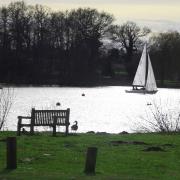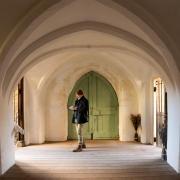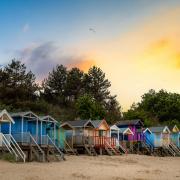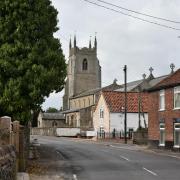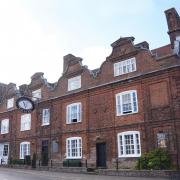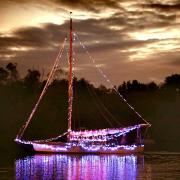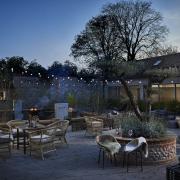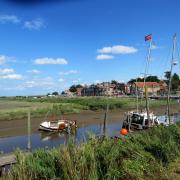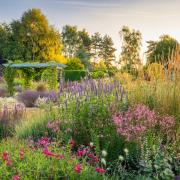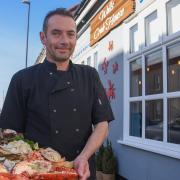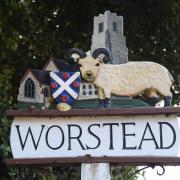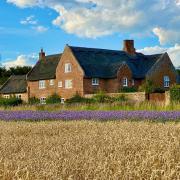For almost 70 years The Broads Society has campaigned for this unique landscape... so what do they get up to? Chair Paul Rice explains
When was the Broads Society founded?
The Broads Society was founded in 1956 by Les Ramuz.
What are its main aims?
To help secure a sustainable future for the Broads as a unique and protected landscape in which leisure, tourism and the local economy can thrive in harmony with the natural environment.
What are its most significant achievements?
The society campaigned for and was instrumental in setting up the Broads Authority in 1979 in what was referred to as a 'Joint Local Authority Committee' although the current BA is now vastly different. We supported the Broads Act which in 1988 gave rise to the Broads Authority becoming a statutory body with wider powers similar to those of a National Park and with additional regards for navigation.
In the 1980's, the Society played a major role when the How Hill Trust was formed, with its now a renowned educational centre.
We have been greatly involved very recently in representations about the Glover review of National Parks and have been working closely with the Campaign for National Parks to put forward proposals to ensure future protection of the Broads within that review to enable, amongst other things, a fair and democratic system of governance.
The Society is the joint owner of the last working eel sett in England located at Candle Dyke.

What are the key issues facing the Broads, in the society’s view?
The Broads are faced with significant issues, probably even more so in the past decade, especially with climate change. At its most recent AGM in November 2021, the Society declared a climate change emergency for the Broads.
Other significant and perhaps associated issues include governance, flooding, water quality, public access, mooring provision and water safety. We actively lobby and campaign on these and other issues to protect the Broads, for example, we have been involved recently with the Daily Telegraph “Campaign for Cleaner Rivers”
Do you feel that the organisations involved in the running of the Broads listen to what you are saying?
We have, during the pandemic period for example, noted conflicting advice being published from organisations involved in running the Broads and other affiliated government bodies adding to the confusion. They simply do not appear to be talking with each other nor engaging with the very people and businesses that live work and operate in the Broads.
We do have to question if the operation of these government bodies in their current form makes them fit for purpose. Are they?
There is a need for them to enhance their public engagement so the public who live, work and enjoy the area and that have that ‘local knowledge’ are listened to.
How important is the National Parks status for the Broads?
The use of the title "National Park" was approved by DEFRA to "offer marketing opportunities" and accompanied by a promise by the Minister, Lord de Mauley, that "its statutory basis is quite separate and legally it is not a National Park. We do not propose to change this position and it is DEFRA's intention that the three purposes of the Broads will remain of equal standing."
Using the title National Park can lead people to lose sight of the important differences. Its status as a valuable landscape is very important to us.

How many members does the society have?
Our current membership stands at around 870 including 16 parish and town councils and eight corporate members
What do members do, in practical terms?
The Broads Society is a planning consultee for the Broads Authority executive area and has two sub-committees, the Northern Rivers Committee and the Southern Rivers Committee. These committees review all planning applications made in the BA executive area and comment on those applications. We also have a water safety sub-committee which is currently monitoring such issues as the Marine Accident Investigation Bureau findings into recent fatal incidents on the Broads
The society has a volunteer practical works team known as Broadsword which works alongside the Broads Authority Rangers doing such works as tree and scrub clearance along the banks.
Some trustees are also involved in working as consultees with the Campaign for National Parks, some are district council volunteer flood wardens and Broads Watch volunteer wild life rescue team members
What sort of people join the society?
As well as local residents we have members from further afield including from abroad and from most age groups including naturalists, navigators, fishermen, farmers, residents and visitors. We also have parish and town councils from within the Broads Executive area plus Broads-based businesses as corporate members.
How can people join the society?
People, parish and town councils and businesses can join from as little as £16 per annum by going to the Broads Society website broads-society.org.uk where they can find a downloadable application form.





